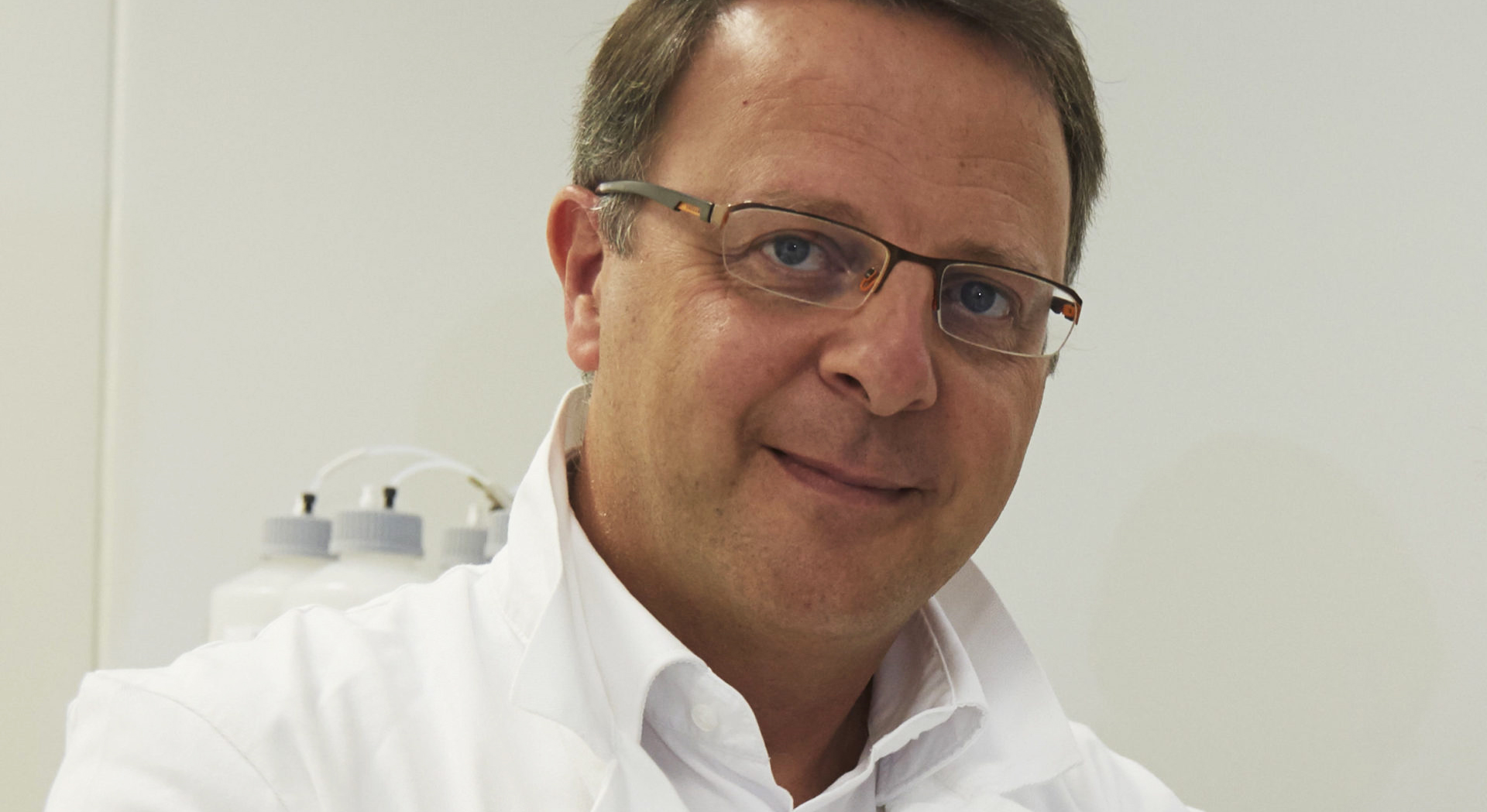Interview with Franck Zal, the founder of Hemarina, Vice-president of Atlanpole Biotherapies

President of a biotech firm that develops “oxygen carriers” derived from lugworm hemoglobin, often used in organ transplants, Franck Zal is seeking re-election to Atlanpole Biotherapies. One of his aims is to redefine the boundaries concerning standards and regulations in the healthcare sector to avoid responsible innovation being undermined by the precautionary approach, widely cited over the last few months.
Based in Brittany, HEMARINA specialises in extracting molecules from the marine worm Arenicola marinae (lugworm) that, in a certain sense, are the precursors of our red blood cells. Lugworm hemoglobin binds forty times more oxygen than human haemoglobin and, as everyone knows, oxygen is vital at every level of life, cells, tissues, organs and organisms as a whole. The first product developed by HEMARINA was HEMO2life®, designed specifically to address oxygenation issues. Initially developed for organ transplants, the focus has now broadened to include other applications, with the product providing an effective technological platform.
The initial application targeted graft preservation. Organ transplants are a race against time, a real challenge in terms of graft oxygenation requirements and the time available for carrying out the transplant. A large proportion of grafts are either not transplanted or are rejected by the recipient due to insufficient oxygenation; this results in longer patient waiting times and, unfortunately, a greater number of deaths.
“Our technology delivers physiological oxygen to the graft and, in a figurative sense, tricks it into thinking that it is still linked to the bloodstream. Clinical trials have demonstrated positive results on the kidney. There is an ongoing clinical trial with a cohort of 460 patients involving all kidney transplant centres in France” explains Franck Zal.
This product is now at the final registration stage with the appropriate regulatory bodies.
Application in the dental sector:
The company also focuses on dental diseases, and periodontal disease in particular. Here, the molecule is delivered in a gel injected into the periodontal pocket to kill bacteria. This product “HEMDental-Care®”, acts rather like an antibiotic, the difference being that it uses the damaging effects of oxygen on anaerobic pathogens. Pre-clinical testing is currently in process, and we should see the launch of a clinical trial within the next couple of years.
The molecule also appears to be effective with dental implants, preventing pathogenic bacteria from damaging the jawbone and ensuring good osseointegration of the implant.
And that’s only a few of the possible applications! HEMARINA is also developing oxygenating dressings for chronic wounds (pressure sores, serious burns, etc.) aimed at speeding up the healing process. The molecule is also of great therapeutic interest for the treatment of ischemic diseases (stroke, myocardial infarction, etc.). The extremely small size of the molecule allows it to oxygenate hypoxic tissues, delivering oxygen to areas that cannot be reached by red blood cells. Lastly, it also has applications in the industrial sector, cell cultures being one notable example.
Your role in Atlanpole:
“I am vice-president of Atlanpole Biotherapies and couldn’t be happier about it! My role allows me to wear two hats – as an entrepreneur and as President of Biotech Santé Bretagne, a biotech and health cluster that is Atlanpole’s representative in Brittany. We are stronger together, and our voices carry further, especially on crucial matters of national sovereignty in the field of healthcare, which is being exacerbated by the current healthcare crisis.
The cluster plays an active role in issues concerning the funding of healthcare start-ups; another area that I would particularly like to focus on is that of positive lobbying initiatives targeting standards and regulations, some of which are completely at odds with the actual conditions in the field.
Biotechs resemble an equation with several variables – an idea, a team, an environment, investments and, above all, patience. Our knowledge of mRNA goes back over forty years but it wasn’t until the pandemic hit that we started to use it to produce vaccines. Our start-ups are driving innovation. These are agile businesses on a human scale that have a real capacity to innovate. As far as medical devices regulations go, a topic I am particularly familiar with, we have completely lost our independence. The notified bodies that certify the healthcare products we develop, are of vital strategic importance for our country, boosting our access to the market. In France, however, there is only one notified body against six in Germany for instance.“
